Rematches, retirements and some surprising returns to politics are the stuff of the many local elections in Metro Vancouver this month.
Vancouver might be home to a tight and crowded race, but it’s only one of the 23 elections taking place in the region home to 2.6 million. Each has its own dramas, from the sexual assault charge that overshadowed a council’s work to a divisive mayor’s count of mischief over claims that a car ran over his foot.
No matter where you live in the region, the gains and pains of growth remain top of mind. Some cities resistant to change have shrunk or stagnated; while heavyweights like Surrey, Burnaby, Richmond and Coquitlam are growing faster than Vancouver itself.
Whoever is elected in these local races could send ripples across the region as a whole, whether it’s decisions over big budget items like rapid transit to competition for new residents looking for better jobs and housing.
Local politicians represent their communities on the Metro Vancouver Board, overseeing regional growth, land use and utilities. Mayors also sit on TransLink’s Mayors Council, which oversees public transit policy for the region. Surrey Mayor Doug McCallum, for example, led his council to scrap plans for light rail through his city within minutes of taking office after the last election, and he was able to rally enough support from the region’s mayors to opt for the pricier SkyTrain instead.
How might power reshuffle in Metro Vancouver this time around? We’ve highlighted a few elections to watch below.
Surrey: The big showdown
Surrey — the fastest growing city in the province with a population of over 568,000 — is home to what’s arguably the wildest race in the region, due to the heat of the competition and controversies during Mayor McCallum’s tenure.
McCallum had been previously elected three times as mayor and managed to return to the seat in 2018. He fulfilled his election promises of SkyTrain for Surrey and starting the transition away from the RCMP to the city’s own police service. However, he was unable to ban ride hailing apps from Surrey, which was shot down by the province and the supreme court, and still hasn’t delivered on a wandering canal through the city.
McCallum’s Surrey, however, has been called undemocratic. The city was given the “Code of Silence Award” by the Canadian Association of Journalists for banning seven senior citizens, who supported keeping the RCMP in Surrey, from attending city council and committee meetings. The ban was eventually rescinded without explanation or apology. Earlier this year, council voted to freeze all complaints and investigations by the city’s ethics commissioner.
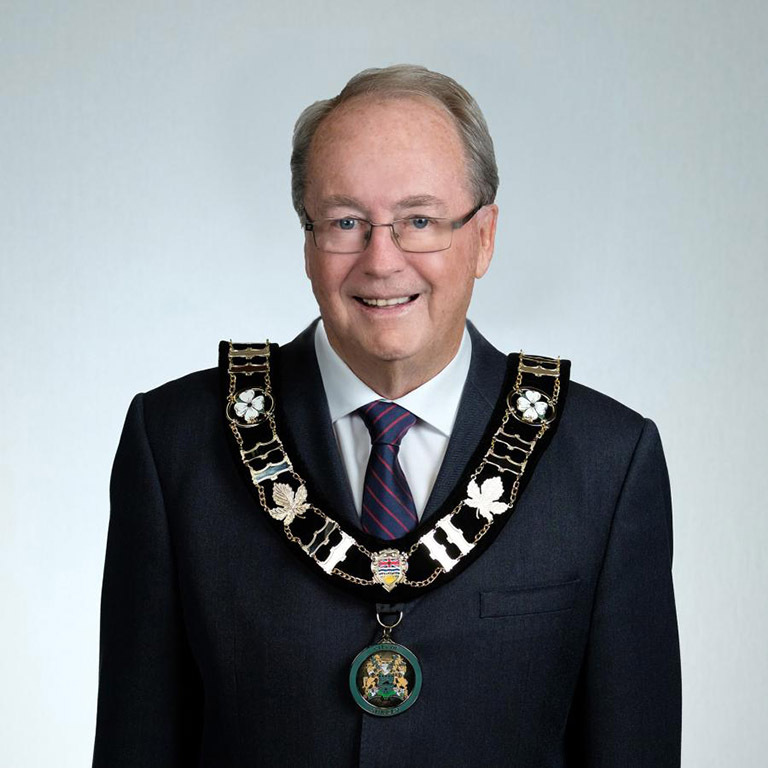
One strange incident that made headlines took place in 2021 at a Save-On-Foods. McCallum encountered supporters of the RCMP there and claimed that one of them pulled her car “so tight to him that she pinned him between their two vehicles” before running over his foot. The RCMP’s search warrant does not show this and found that he had soft tissue damage but no broken bones. McCallum was then charged by the RCMP with public mischief, which is usually the result of making false or misleading statements to police. The driver was one of the people that McCallum banned from city meetings days before.
This election, McCallum is facing competition for mayor from every direction, all of whom are positioning themselves as alternatives to his style of leadership.
There’s Jinny Sims, the former NDP MLA representing a new party called Surrey Forward, who says McCallum brought “disgrace” to the office.
There’s Sukh Dhaliwal, the former Liberal MP who helped McCallum during his first bid for mayor in 1996, but is now criticizing his “partisanship” and “unprecedented division.” He too has started a new party, called United Surrey. Dhaliwal has faced off with Sims before in federal races.
There’s also Gordie Hogg, one of the most experienced politicians in the area, running with Surrey First, the party of former mayor Dianne Watts. Hogg has served as White Rock’s mayor, a BC Liberal MLA and cabinet minister and most recently a Liberal MP. He’s not convinced that the city needs SkyTrain nor its own police force, which he promises a referendum on.
As in the past, McCallum has a big promise for voters who support him: a 60,000-seat stadium for “all sports” near SkyTrain so that it doesn’t have to have parking. The man who built Rogers Arena told the CBC that such a proposal is a “tall order.”
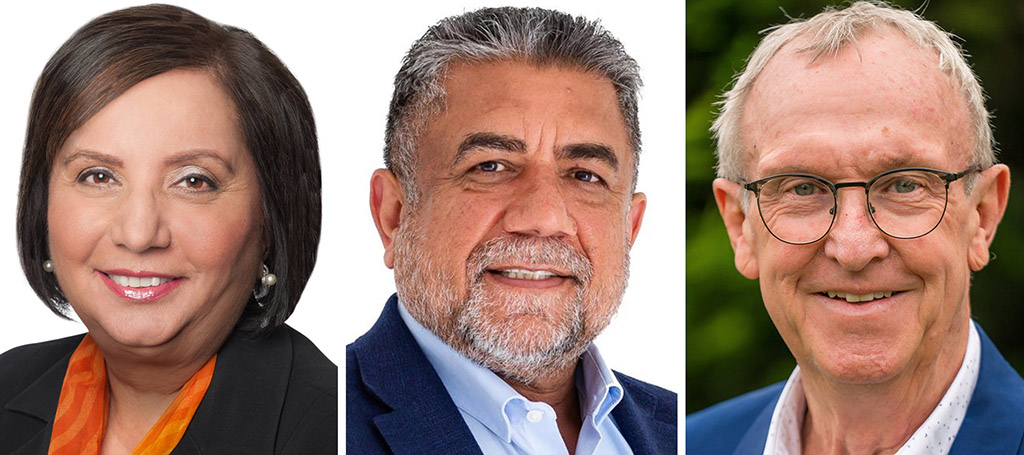
Port Moody: Council interrupted
Rob Vagramov, who was elected in 2018 at age 26, is not running again this year for mayor of Port Moody, a city of about 33,500 people.
In 2019, he was charged with sexual assault for an incident alleged to have taken place in Coquitlam in 2015. The charges were stayed and no details on what alternative measures Vagramov completed were provided. Media petitioned the B.C. Supreme Court, but the justice said that “disclosure of the records is not desirable in the interest of the proper administration of justice.”
During his election campaign, Vagramov won over Port Moody voters with a message of slowing growth and avoiding what he called the “Metrotownification” of the city, the term nodding to the condo boom in that area of Burnaby.
In wake of the Vagramov’s sexual assault charge, he took two absences from council meetings, one of which was requested by a majority of his fellow councillors.
Despite the case overshadowing his term, his growth-resistant vision for Port Moody seems to have come true. Despite having two fairly new SkyTrain stations, the city’s population dropped between 2016 and 2021.
The two candidates vying for the mayor’s seat, both with experience on council, are on opposite sides of the growth debate. Meghan Lahti wants to densify around Moody Centre; Steve Milani, however, does not.
Township of Langley: The ‘minister of everything’ returns
Rich Coleman — former BC Liberal premier Christy Clark’s minister of everything from housing to gaming to natural gas development — is running for mayor in the Township of Langley.
The former member of the RCMP, who also has experiencing running a real estate management and consulting company, stepped away from politics in 2019 when he decided not to run again for MLA.
But he returned to the public spotlight as a result of the Cullen Commission of Inquiry into Money Laundering, which reported that Coleman “was aware of the concerns of the GPEB investigation division and law enforcement that the province’s casinos were being used to launder the proceeds of crime.” It said that “more could have been done” by Coleman, who oversaw gaming as minister during “extended periods during the evolution of this crisis.”
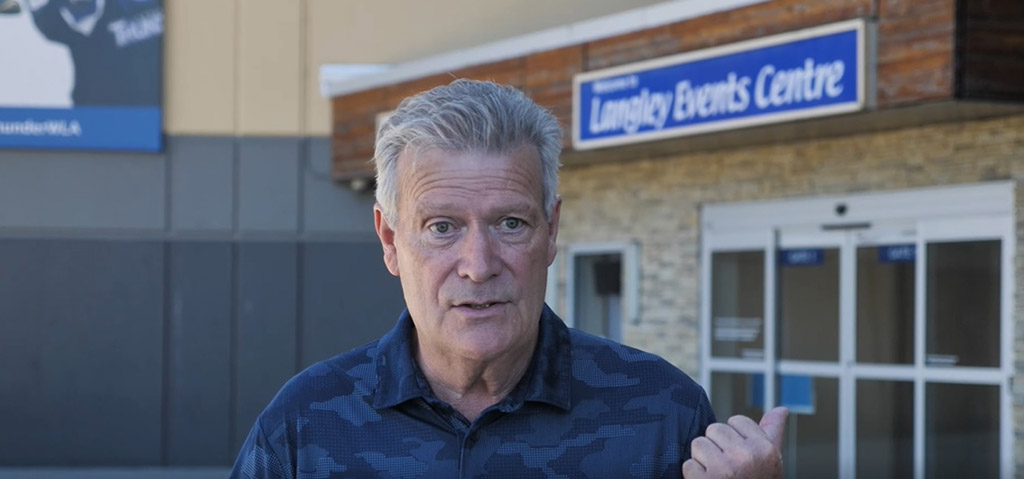
Screenshot from an Elevate Langley ad.
Coleman has re-emerged, but this time to run on the local level with a new party called Elevate Langley, saying he has “more to give.”
Langley Township Mayor Jack Froese is stepping down after three terms and has endorsed fellow councillor Blair Whitmarsh, who wants to see public transit, walkability ahead of SkyTrain’s arrival and new supportive housing.
West Vancouver: Stuck in traffic
Housing and transportation dominate the politics of West Vancouver — not to mention the entire North Shore — differently from the rest of its region due to its location and vocal residents resistant to change, even in the form of an express bus.
In 2020, a North Shore transportation planning project with its three municipalities, senior levels of government, the port and TransLink at the table was completed. It highlighted the problem of car-dominance in an area with inadequate roads and public transit. A new partnership called North Shore Connects is building on this work, involving two local First Nations.
Last election, Mary-Ann Booth defeated incumbent Mark Sager by a narrow 18 votes. Her solution to her community’s challenges: diversify the housing stock, albeit at the scale of a “European village.”
But even that proved to be a challenge. The projects that landed on her desk during her first year as mayor were defeated or delayed in split votes by her fellow councillors, with the usual pressure from local residents opposed to development.
Council has shot down projects from turning four lots, including an abandoned church, into 14 homes to a seven-unit tower that would’ve been the city’s first zero-emission, mass-timber development.
Sager, the former mayor, is challenging Booth for the mayor’s seat this election. He has said during debates that he wants to encourage people to buy homes rather than rent them. He also said that he doesn’t think families want to live in high-rises, something Booth refuted by pointing out that the new towers at Park Royal have already sold out.
Richmond: A farmland defender retires
Harold Steves won’t be on the ballot this election, leaving behind an enormous legacy for the one-time school teacher and longtime cattle rancher who was first elected to council in 1968.
The story of how Steves got into politics has become a classic yarn.
City hall had quietly rezoned many family farms in Richmond, like the Steves’ dairy farm, for housing. It meant that the Steves couldn’t modernize their barn, resulting in their exit from the dairy business. On top of that, the rezoning resulted in the quadrupling of their property taxes. Steves was 22 at the time and saw that many farmers didn’t bother fighting city hall because they didn’t know how.
So a few years later, he made a run for city council and won a seat. From there, Steves made a jump to MLA in 1972 as part of Dave Barrett’s government. He was a longtime New Democrat, serving as the first president of the BC NDP Youth in 1961.
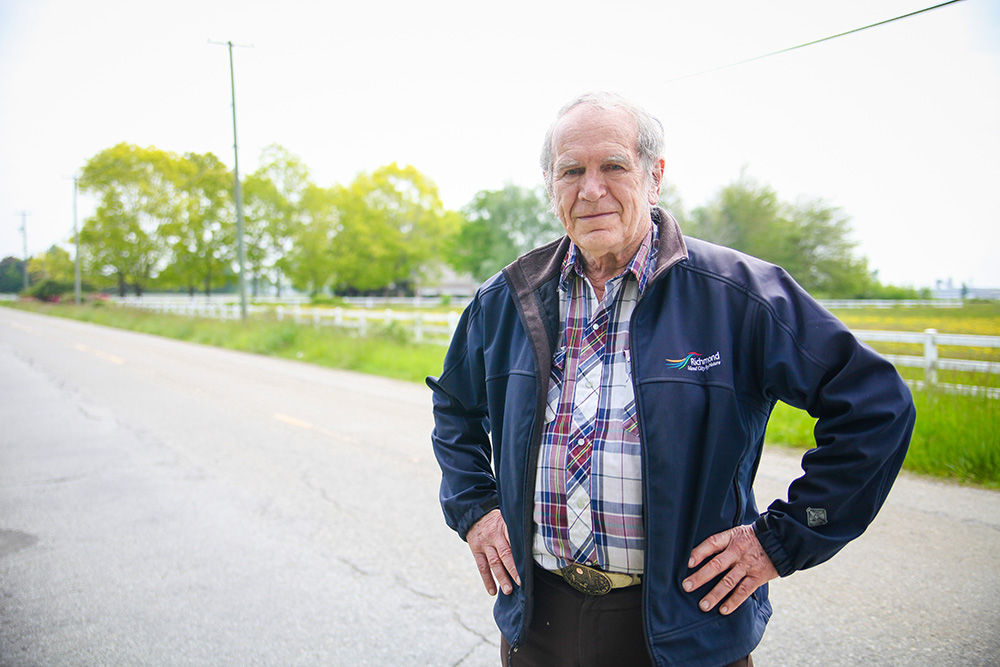
Photo by Christopher Cheung from 2017.
During his term, Steves saw a proposal he had worked on at party conventions come to fruition: the creation of the province’s Agricultural Land Reserve.
Steves returned to council in 1977 and has been elected every term since. He’s sat on numerous civic and regional committees, with special attention to agriculture.
While Steves might be stepping down from council, he’s already planning an active retirement.
As for the mayoral race, Malcolm Brodie is running again for the eighth time.
Kash Heed, the former BC Liberal solicitor general, is one high-profile newcomer to Richmond politics. He’s seeking a council seat as opposed to the mayoralty, admitting that it would be tough to challenge a veteran like Brodie.
New Westminster: Mayor Cote steps out of the ring
New Westminster is known for its progressive politics — with voters consistently choosing the NDP — which makes its municipal races a bit predictable.
But this election brings the major departure of councillor-turned-mayor Jonathan X. Cote. The second of his two terms as mayor saw a sweep for his “Team Cote” slate of council and school board candidates.
Coming from Simon Fraser University’s urban studies program, Cote was known as a bit of a policy wonk — though there was the memorable time he stepped out from behind the desk, put on a pair of gold lamé pants and entered his city’s Royal City Rumble to wrestle as “Johnny X.” Cote was chair of TransLink’s Mayors’ Council, which requires a politician adept at building consensus.
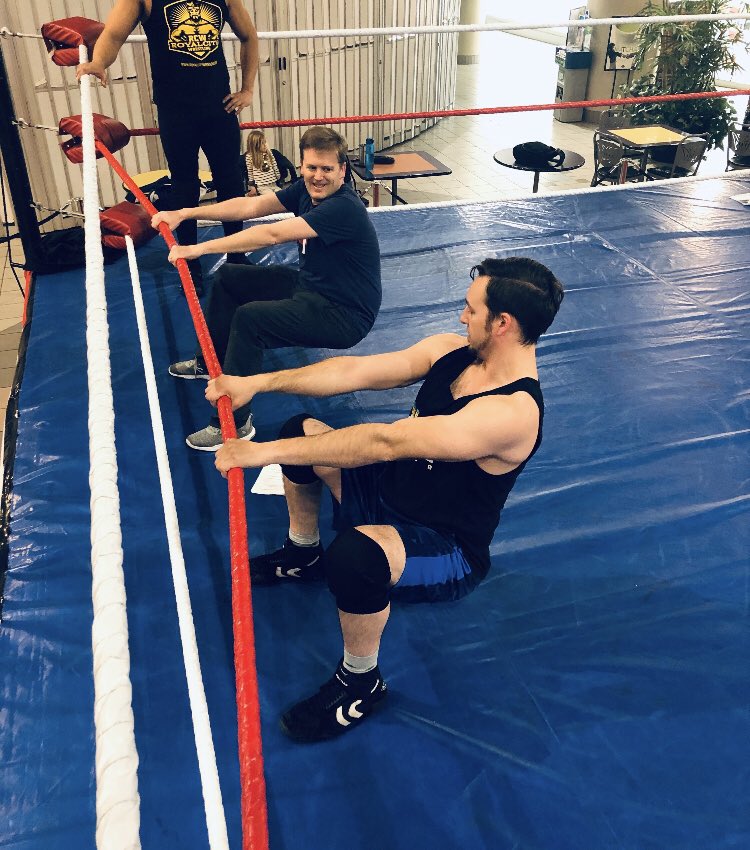
Photo from 2019 via Jonathan Cote’s Twitter.
Some of Team Cote’s politicians are planning a return to city hall under the new Community First party. Two-term councillor Patrick Johnstone is running for mayor with the party and its endorsement of the local labour council, a blessing that’s key to victory in the city of about 79,000 people.
Burnaby: Acclamation!
Mike Hurley has it easy this time around.
The former firefighter and first-time politician fought a tense race in 2018. Hurley was able to unseat longtime Burnaby mayor Derek Corrigan, whose final years in office were marked by controversy over “demovictions” of low-income renters in the Metrotown area.
This election, Hurley was unchallenged, meaning that he won the mayoralty by acclamation.
The race for council seats is still going ahead. Corrigan’s NDP-affiliated party, the Burnaby Citizens Association, stacked council with its candidates for many years.
But since Hurley the independent took office, allegiances have shaken up.
Joe Keithley, perhaps more widely known as “Joey Shithead” of the punk band DOA, seems to be enjoying politics after his first term as a Burnaby councillor and is running again with the Greens.
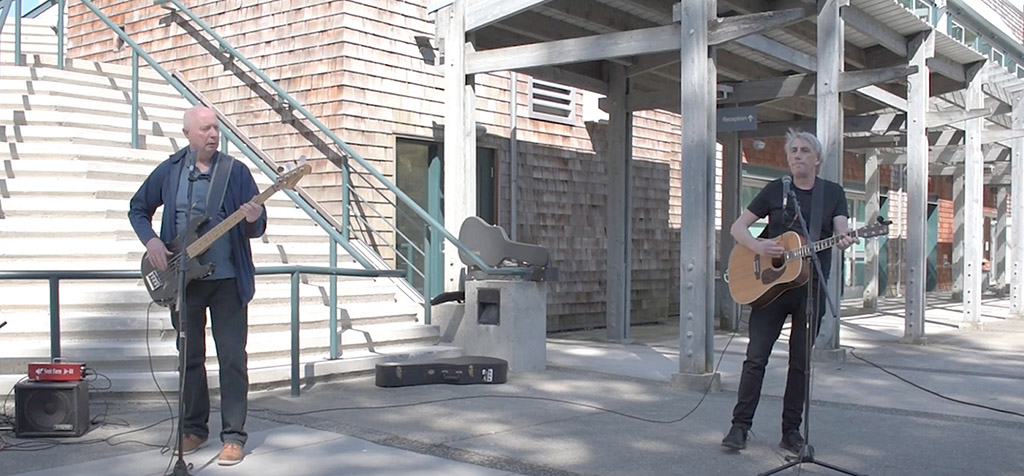
Still from City of Burnaby video.
Despite Hurley’s change in direction from the demoviction days, with new renter assistance policies and even the possibility of starting a municipal housing corporation, there’s still a lot of work to be done on the housing file.
Special thanks to the local journalists at community publications who’ve kept a regular eye on the ins and outs of their governments. We’ve linked to much of their coverage above. ![]()
